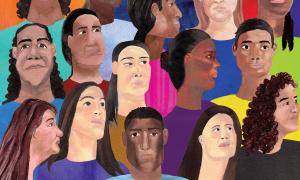Among my third-graders, conflicts often arose over the issue of skin color. “Your mama left you in the oven too long. You look just like a burnt cookie!” “Oh yeah, well you look like a white boy. I bet you ain’t even black.” As a young white teacher coming into a school that is about half African-American and half Latino, I knew there would be racial conflicts, but I didn’t know how they would manifest themselves. I assumed that both groups’ first concern would be the oppression and racism from white people. I was not expecting the intense criticism that I found within the African-American community of its own members.


